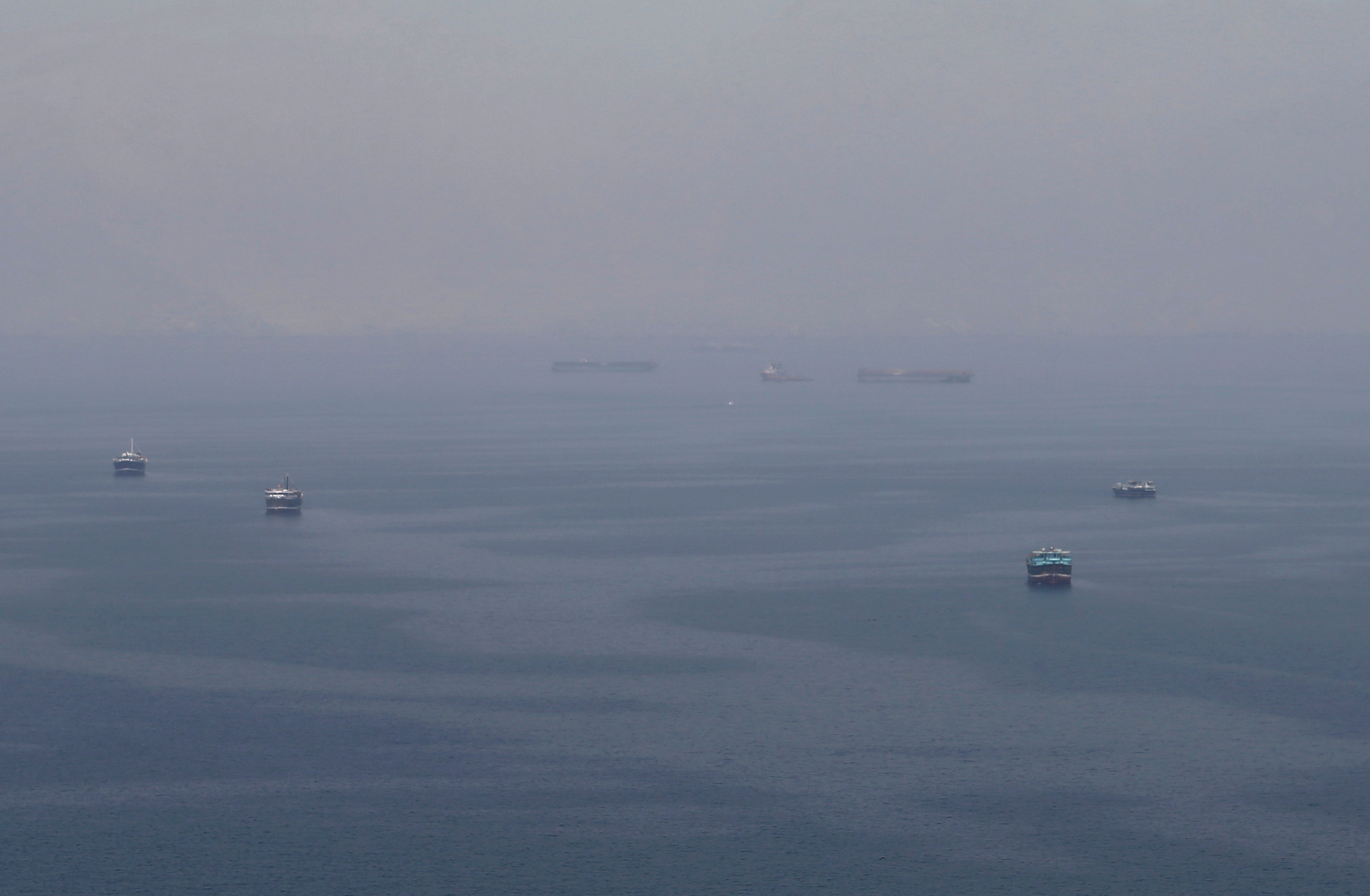Israeli cargo ship hit by ‘unexplained explosion’ in Gulf of Oman
Satellite-tracking data shows vessel suddenly turning around and heading back towards Strait of Hormuz

Your support helps us to tell the story
From reproductive rights to climate change to Big Tech, The Independent is on the ground when the story is developing. Whether it's investigating the financials of Elon Musk's pro-Trump PAC or producing our latest documentary, 'The A Word', which shines a light on the American women fighting for reproductive rights, we know how important it is to parse out the facts from the messaging.
At such a critical moment in US history, we need reporters on the ground. Your donation allows us to keep sending journalists to speak to both sides of the story.
The Independent is trusted by Americans across the entire political spectrum. And unlike many other quality news outlets, we choose not to lock Americans out of our reporting and analysis with paywalls. We believe quality journalism should be available to everyone, paid for by those who can afford it.
Your support makes all the difference.An Israeli cargo ship has been struck by an unexplained explosion while sailing in the Gulf of Oman.
The crew were uninjured but the stricken vessel, believed to be MV Helios Ray – a Bahaman-flagged roll-on, roll-off vehicle carrier – was forced to turn back towards a port.
Satellite-tracking data from website MarineTraffic.com said the Helios Ray departed the Saudi port of Dammam on Wednesday.
It showed the vessel close to entering the Arabian Sea at around 10am local time (6am GMT) on Friday, before it suddenly turned around and began heading in the direction of the Strait of Hormuz.
By 4pm GMT, the ship was shown still in the Gulf of Oman and had not reached a port or the strait. Singapore was still listed as the destination on its tracker. The ship had been due there on 5 March.
The United Kingdom Maritime Trade Operations, which is run by the British navy and provides information on maritime incidents, said a “MV [motor vessel] has experienced an explosion” and provided the location as the Gulf of Oman.
“Investigations are ongoing. Vessel and crew are safe and proceeding to NPOV [Naval Point of Contact],” an advisory published on its website on Thursday evening said.
A spokesman for Israel’s Transportation Ministry said it had no information about an Israeli vessel having been struck in the Gulf.
While the circumstances of the explosion remain unexplained, Dryad Global, a maritime intelligence firm, said it was very possible the blast stemmed from “asymmetric activity by Iranian military”. Iran did not immediately acknowledge the incident, AP reported.
The Neptune P2P group, a maritime security company, said: “There is no indication at this point as to the cause of the explosion, however, the incident took place close to an area where two vessels were attacked in July 2019 with what was believed to be limpet mines. There is nothing at present to suggest that this is the case in this incident.”
The ship is understood to be owned by Tel Aviv-based Ray Shipping Ltd. The firm’s owner, Abraham Ungar, was quoted by Israeli media as saying that the explosion was likely caused by “missiles or a mine placed on the bow”.
“Israeli authorities will investigate this together with me,” he is reported to have said. “I don’t think this deliberately targeted an Israeli-owned ship, that has not happened to me before.”
The US Navy’s Bahrain-based Fifth Fleet said it was aware of the incident and was monitoring the situation.
The Gulf of Oman saw a series of explosions in 2019 that the US Navy blamed on Iran.
Tensions have risen in the Gulf region since the United States reimposed sanctions on Iran in 2018 after the then-president, Donald Trump, withdrew Washington from Tehran’s 2015 nuclear deal.
Washington has blamed Iran for a number of attacks on shipping in strategic Gulf waters, including two Saudi oil tankers in May 2019. Iran distanced itself from those attacks.
In early January, Iran’s Revolutionary Guards seized a South Korean-flagged tanker in Gulf waters and detained its crew.
Additional reporting by agencies

Join our commenting forum
Join thought-provoking conversations, follow other Independent readers and see their replies
Comments